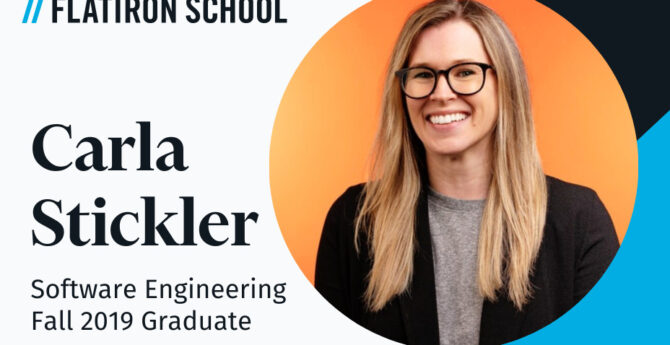NYC Campus

Alumni Stories
Carla Stickler: From Broadway Star To Software Engineer
"I love my job and couldn’t be more grateful for the life that attending Flatiron and learning to code has provided for me.”
Browse by Category
- All Categories
- Admissions
- Alumni Stories
- Announcements
- Artificial Intelligence
- Career Advice
- Cybersecurity Engineering
- Data Science
- Denver Campus
- Diversity In Tech
- Enterprise
- Flatiron School
- How To
- NYC Campus
- Online Campus
- Partnerships
- Software Engineering
- Staff / Coach Features
- Tech Trends
- UX / UI Product Design
- Women In Tech
